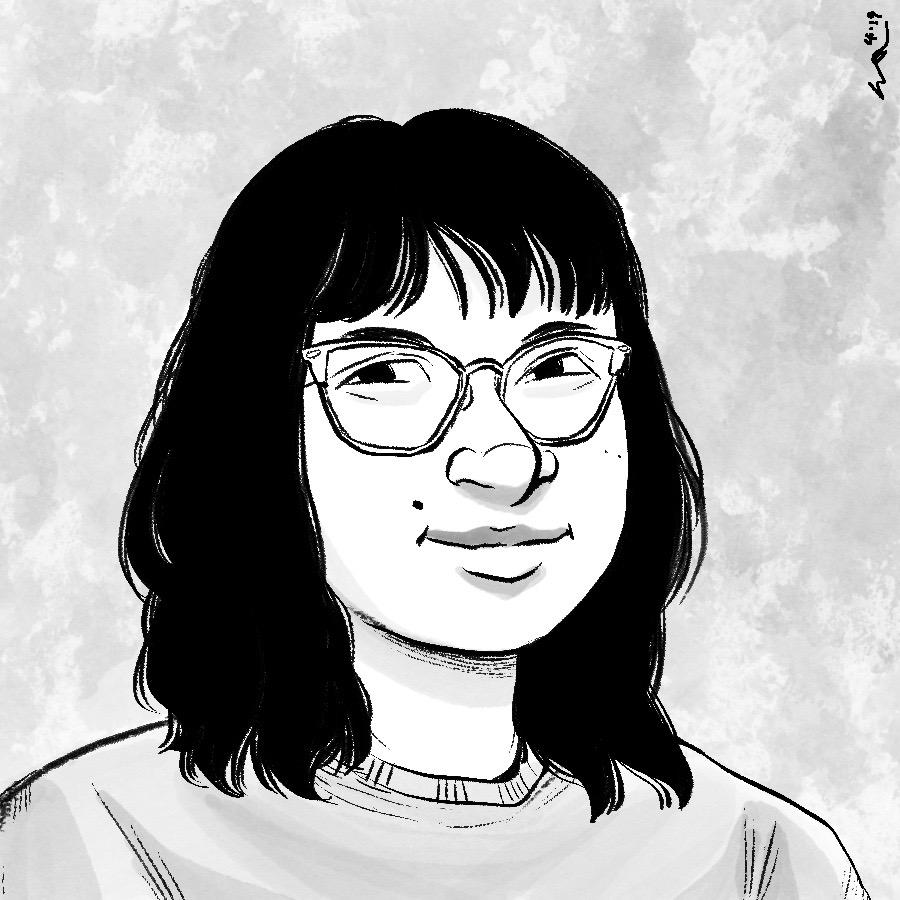During a special Writers@Grinnell event dubbed “Writers After Grinnell,” Grinnell College hosted alumni writers Soleil Ho `09, Concepción de Leon `12 and Jumi Bello `13. Among much other wisdom, the panel informed Grinnell students, alumni and community members alike that it’s okay to be a “shitshow” once in a while.
Dean Bakopoulos, coordinator of Writers@Grinnell, said he wanted to highlight the reality of writing outside of Grinnell and invited the alumnae to speak of their experiences and to give advice for aspiring writers. At one time all Grinnell students, the writers now have impressive writing careers. Ho is a the restaurant critic for the San Francisco Chronicle and has hosted podcasts, including The Racist Sandwich, which addressed the nuances of racism in food and its surrounding culture. De Leon recently shifted roles at The New York Times, becoming a narrative reporter after over four years of breaking news and book reporting. And Bello is a Master of Fine Arts candidate at the Iowa Writers’ Workshop and is currently working on her novel The Leaving.
To get the ball rolling, Bakopoulos prompted the panel to give advice to their younger selves.

Ho reflected on how the 2008 recession made her more conservative with her prospects post-graduation. De Leon said she wished she had bought into the idea that she could decide what her personal “endgame” job was, not society at large. But the loudest consensus among the group came when Bello said she would tell herself, “Hey, you’re a shitshow. It’s okay to be a shitshow. It’s okay to not know what you are going to do with your life.”
More generally, the trio agreed that students should not go to graduate school until they know why they want to be there. De Leon also attributed growth as a writer to taking time to do something outside of writing.
For Bello, this was her first time being back in the Grinnell community since she had graduated. After going abroad and living in Asia, Bello considered going to graduate school for an MFA degree, which turned out to be a difficult decision.
“When I was a student at Grinnell, I felt like an imposter all the time. … I actively had people telling me that I shouldn’t be in these spaces or that, you know, it wasn’t the right fit.”
Despite the fact that Bello was accepted to the Iowa Writers’ Workshop, she warned that “systemic inequality follows.” Citing various scenarios of white ignorance, Bello and Ho said they found that the MFA world continues to find ways to oppress BIPOC.

De Leon agreed, saying that “I kind of had to teach myself how to stop writing for white people.”
In order to understand her future in graduate school, Bello sought out Ho for advice.
“You have to talk to people who would take the same path as you would,” said Bello, advising those interested in an MFA program to do the same and to seek out a fully funded program.
Even for those not going on to graduate school, Ho stressed the importance of finding a community. “You got to find your people. It connects to talking shit, where you want to be in a space where you will find people who are sympathetic and understand where you are coming from. Empathy. Who will check you but tell you that this is not okay – that will be your sanity check.”
I kind of had to teach myself how to stop writing for white people. – Concepción de Leon `12
Agreeing, de Leon said, “It is good to have that counternarrative because it will drive you nuts, and it will get into your head. It is also really important. Stand up for yourself.”
Bello added that while being a writer does come with a need to accept rejection, disagreement with other opinions about your work is still valid.
There is still much work to be done in the writing community, though, they said. “The people who deem what is newsworthy and what is not is still very homogenous,” admitted Leon. “And holds an incredible amount of power.”




































































